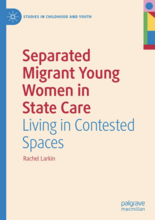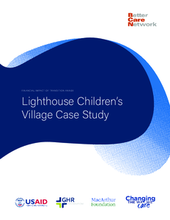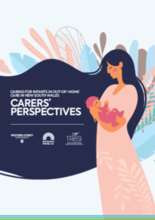Displaying 51 - 60 of 691
In any transition process, different levels of risk and challenges can impact the children in care and therefore need to be managed.
This is an interview with Dragana Ciric Milovanovic, director of European Programs for Disability Rights International (DRI), during the European Launch of the Deinstitutionalization Guidelines, including in emergencies.
This brief was developed from key informant interviews in the countries that participated in the care system assessment: Armenia, Guatemala, Kenya, and Uganda. The aim is to share learning with others interested in assessing a country’s care system, to think about if a care system assessment is right for them, and if so, how to do it.
These are the key findings and recommendations of a report produced by Coram Voice and The Rees Centre at University of Oxford that captures the views of 10,000 children and young people in care in the UK on their wellbeing. This report summarises responses collected through the largest survey of its kind from children and young people aged 4-18 years between 2016 and 2021, giving unprecedented insight into children in care’s subjective wellbeing.
This report presents the findings of an online survey and individual interviews which explored the experiences of carers providing out-of-home care to infants in New South Wales. While there is increasing research related to the care of children and young people requiring out-of-home Care, there is comparatively less specifically related to the care of infants. The findings highlight a need to provide increased training, support, and resources for new carers of infants in out-of-home care.
This is the third report by Coram Voice and The Rees Centre at University of Oxford exploring learning from the Your Life, Your Care surveys that are part of the Bright Spots Programme. It is an analysis of 9,472 responses from children and young people (aged 4-18 years) collected between 2016 and 2021 from 38 Local Authorities in England. The findings build on previous overview reports and the pilot stage in 2015 that involved 611 children and young people. By 2021, the research team had gathered over 10,000 voices from children in care in England.
This report produced by Coram Voice and the NYAS (National Youth Advocacy Service) captures the views of care-experienced children and young people in the UK on recommendations set out in the independent review of children’s social care in England.
Organised jointly by ENIL-ECCL and Disability Rights Defenders, this webinar on November 22, 2022, featured speakers from Sweden, Slovenia and Scotland on the UN Guidelines on Deinstitutionalisation, including in Emergencies.
This case study outlines the financial impact of the transition of Bridges Safehouse, an organization that provided support to a total of 834 children, youth and adults, through their residential and community-based intervention programs combined.
This chapter in the book "Separated Migrant Young Women in State Care" explores how state care systems respond to separated young migrants, using examples from across the globe.








